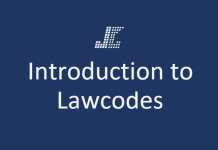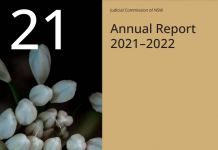- How do I make a complaint?
- What type of complaints can the Judicial Commission investigate?
- Who can the Judicial Commission investigate?
- Who deals with complaints about federal judicial officers?
- What the Judicial Commission cannot do
- Can I make a complaint to the Judicial Commission rather than lodge an appeal?
- Is the Judicial Commission independent?
- Can the Judicial Commission tell judicial officers what to do?
- Can I get informal advice from the Judicial Commission?
- Is there a cost for making a complaint?
- Can I make a complaint anonymously?
- Is there a time limit on lodging my complaint?
- What happens if the judicial officer retires before my complaint is resolved?
- Do I need to get legal representation?
- Can I get an interpreter organised by the Judicial Commission?
- What will happen to my complaint?
- What will happen if I make a false complaint?
- How does the Judicial Commission deal with vexatious complaints?
- How long will it take to finalise my complaint?
- What does it mean that the Judicial Commission’s decision is final?
How do I make a complaint?
Anyone may make a complaint about the ability or behaviour of a judicial officer. A formal complaint must:
- be in writing (using the Judicial Commission’s complaint form)
- identify yourself and the judicial officer involved
- be supported by a statutory declaration that verifies the particulars of the complaint
- be lodged with the Commission’s Chief Executive.
Click here to access a guide for complaints and a here for a flowchart of how a complaint is processed. Click here to download instructions for lodging a complaint against a judicial officer.
What type of complaints can the Judicial Commission examine?
Only complaints about the ability or behaviour of a judicial officer. Common causes of complaint to the Judicial Commission about the ability or behaviour of judicial officers that may have affected the performance of judicial or official duties include:
- failure to give fair hearing
- bias
- incompetence
- inappropriate comments or questions
- collusion
- discourtesy
- unreasonable delay.
Allegations of corruption must be raised with the Independent Commission Against Corruption.
Click here to see a range of past complaint case studies.
Who can the Judicial Commission investigate?
A “judicial officer” under the Judicial Officers Act 1986 means:
- a judge or associate judge of the Supreme Court of NSW
- a member (including a judicial member) of the Industrial Relations Commission of NSW
- a judge of the Land and Environment Court of NSW
- a judge of the District Court of NSW
- the President of the Children’s Court of NSW
- a magistrate, or
- the President of the Civil and Administrative Tribunal.
The definition of “judicial officer” includes acting appointments to a judicial office but does not include arbitrators, registrars, assessors, members of tribunals or legal practitioners. The Commission also has no power to examine complaints against members of the Civil and Administrative Tribunal who are not otherwise a judicial officer under the Judicial Officers Act 1986, federal judicial officers or a person who is no longer a judicial officer.
Who deals with complaints against federal judicial officers?
- Federal Court of Australia: see their judicial complaints procedure.
- Federal Circuit and Family Court of Australia: see their judicial complaints procedure.
What the Judicial Commission cannot do
The Judicial Commission cannot:
- provide legal advice or legal representation
- review a case for judicial error, mistake or other legal grounds
- discipline or sanction a judicial officer
- investigate allegations of criminal or corrupt conduct
- investigate a complaint about a retired judicial officer, federal judicial officer, arbitrator, assessor, registrar, member of a tribunal or legal practitioner.
Can I make a complaint to the Judicial Commission rather than lodge an appeal?
Complainants often allege that a judicial officer made a wrong decision. The Judicial Commission’s role is to examine complaints about ability or behaviour. The Commission does not have authority to review judicial decisions for errors of fact or law. A court of appeal is the appropriate avenue for determining whether the judicial officer made an error in law or fact or if there was a miscarriage of justice. The Commission is required to dismiss complaints summarily when there is an avenue of appeal or review available.
Is the Judicial Commission independent?
The Judicial Commission is an independent statutory authority. The Commission’s decisions are not subject to review by the Attorney General, the Secretary of the Department of Justice, or the Parliament of NSW. The Attorney General may request information about a complaint and the Commission must provide this information unless it is not in the public interest to do so.
A Conduct Division, which is appointed by the Commission to deal with a specific complaint, is subject to the supervisory jurisdiction of the Supreme Court. The court can only intervene if some form of legal error arising under administrative law principles can be identified. Each complaint is dealt with on its merits. It is Commission policy that a judicial member will not participate in any discussion or decision involving a complaint against him or her. No member will participate in any discussion or decision where that member has a possible conflict of interest.
Can the Judicial Commission tell judicial officers what to do?
No. The Judicial Commission has no power to discipline judicial officers. Judicial independence requires that the judiciary are free from interference in the performance of their duties.
Can I get informal advice from the Judicial Commission?
The Judicial Commission regularly provides information over the phone and/or in writing to potential complainants. The Commission is usually able to help by providing information or an explanation, referring you to another agency, advising you about the complaints process, or if the matter should be dealt with on appeal, advising you to seek independent legal advice. The complaint will only be considered when it is made in writing and includes the relevant information. See “How do I make a complaint?” above.
Is there a cost for making a complaint?
There is no cost involved in making a formal complaint about a relevant judicial officer to the Judicial Commission.
Can I make a complaint anonymously?
No. The Judicial Officers Act 1986 requires you to provide your name and contact details to the Judicial Commission when you lodge a formal complaint.
Is there a time limit on lodging my complaint?
The Judicial Commission will dismiss a complaint if it is of the opinion, after taking into account such matters as it thinks fit, that the matter complained about occurred at “too remote a time” to justify further consideration.
What happens if the judicial officer retires before my complaint is resolved?
The complaint is dismissed because the Judicial Commission has no power to examine a complaint against a retired judicial officer.
Do I need to get legal representation?
Normally, you will not need legal representation. However, if the Conduct Division decides to hold a hearing and requires you to be present, there may be special circumstances that will allow you to be represented by an Australian legal practitioner.
Can I get an interpreter organised by the Judicial Commission?
Telephone interpreters can be arranged through Multicultural NSW language services.
What will happen to my complaint?
The Judicial Commission will:
- acknowledge your complaint in writing within one week of receipt
- advise the judicial officer of your complaint and provide the judicial officer with a copy of the documentation
- conduct a thorough investigation of the complaint (which may involve an examination of transcripts, sound recordings, judgments and other material relevant to the complaint)
- if necessary, seek a response to the complaint from the judicial officer.
Following its preliminary examination, the Commission must take one of the following actions:
- summarily dismiss the complaint
- refer the complaint to the relevant head of jurisdiction, or
- refer the complaint to the Conduct Division.
What will happen if I make a false complaint?
Your complaint can be summarily dismissed if the Judicial Commission is of the opinion that your complaint is frivolous, vexatious or not in good faith.
How does the Judicial Commission deal with vexatious complaints?
The Judicial Commission has power to declare a person a vexatious complainant. If this happens, the Commission can disregard any further complaints from the person until the declaration is removed.
How long will it take to finalise my complaint?
The Judicial Commission aims to acknowledge receipt of all complaints within five working days. The Commission aims to finalise the investigation of 90% of complaints within six months of receipt and 100% within 12 months of receipt.
What does it mean that the Judicial Commission’s decision is final?
The Judicial Commission’s decision on a complaint is final and there is no further avenue of appeal or review of the decision. The Commission’s investigations and decisions cannot be reviewed by the Attorney General nor the Department of Justice.










